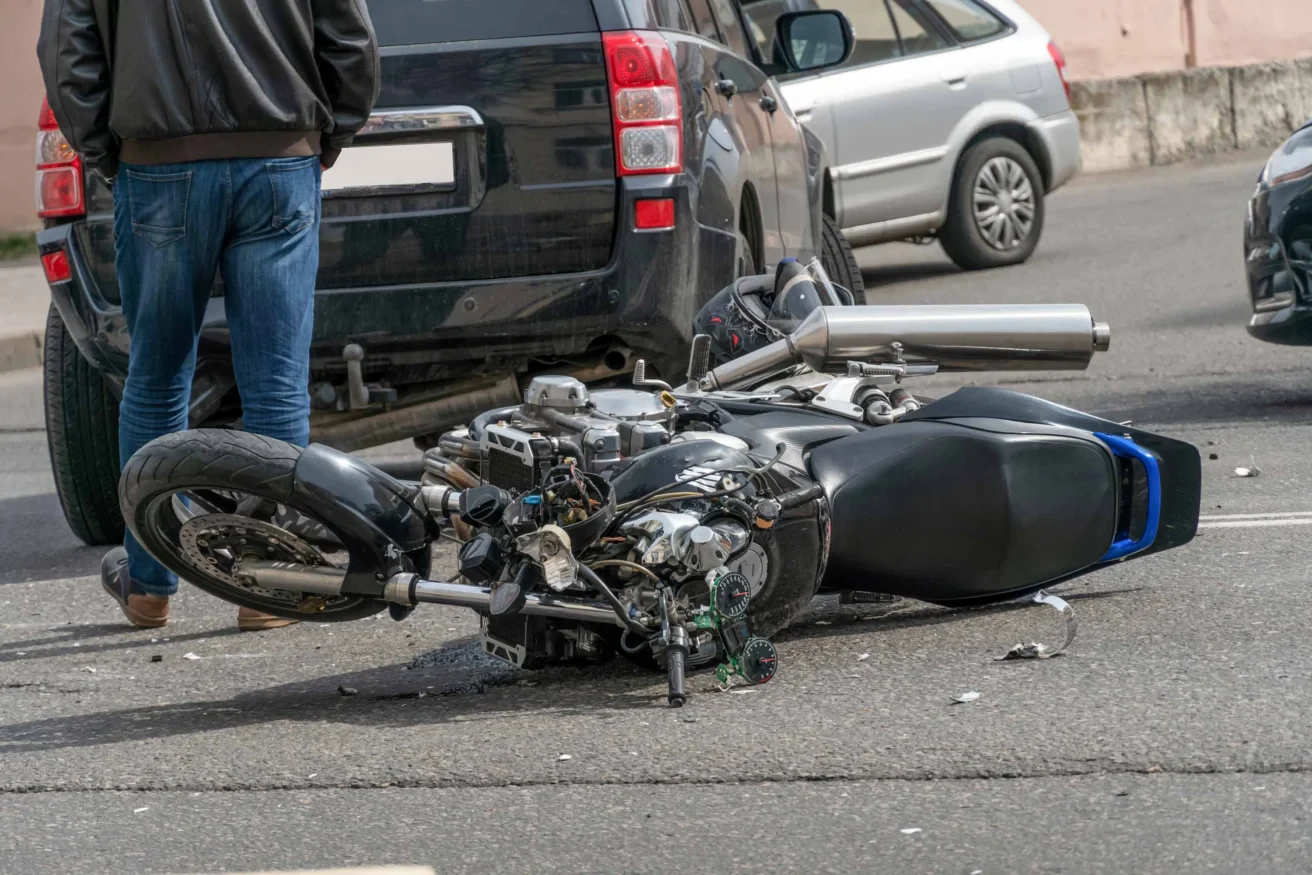What To Do After a Motorcycle Accident: A Step‑by‑Step Guide

After a motorcycle crash, shock and confusion are normal. What you do next can protect your health, your rights, and your claim. Follow these steps from the moment it happens through the days and weeks that follow.
1) Prioritize Safety
- If you can, move yourself (and your bike if safe) out of the roadway.
- Turn on hazards; set out triangles/flares if available.
- Don’t remove your helmet unless breathing is affected or a first responder instructs you.
- Don’t move an injured rider unless there’s an immediate danger (fire/traffic).
2) Call 911
- Always report the crash—even if it seems minor.
- Ask for both police and EMS. The police report anchors the insurance claim and any future lawsuit.
- Note the responding agency and the report number before you leave.
3) Document the Scene
Use your phone to record:
- Vehicle positions, damage (close and wide shots), debris, skid marks.
- Road, weather, and visibility conditions; broken or obscured signs; potholes.
- Your protective gear damage (helmet, jacket, gloves, boots).
- Your injuries, immediately and over the next 48–72 hours.
- Witnesses: names, phone numbers, brief statement if they’re willing.
4) Exchange Information—But Don’t Admit Fault
Swap only the basics:
- Names, phone/email, driver’s license numbers
- Plate numbers; vehicle make/model
- Insurance company and policy numbers
- For commercial vehicles, get the employer name and DOT number if visible
- Avoid apologizing or speculating about what happened. Stick to facts.
5) Seek Medical Care the Same Day
- Adrenaline hides injuries. Concussions, internal bleeding, and soft‑tissue injuries often appear later.
- Go to the ER, urgent care, or your doctor the day of the crash; follow all medical advice.
- Keep every discharge note, imaging record, and receipt. Gaps in treatment get used against you.
6) Notify Your Insurance—Carefully
- Report the crash promptly. Provide facts only (time, location, parties).
- Decline any recorded statement until you’ve spoken to a lawyer.
- If the other insurer calls you, take their info and refer them to your attorney.
7) Protect Your Claim
- Save and back up photos, GoPro footage, dash‑cam clips, 911 audio if you can get it, and repair estimates.
- Keep a pain and recovery journal (sleep, work limits, medications, missed events).
- Do not post about the crash on social media.
8) Talk to a Motorcycle Accident Attorney Early
A lawyer will:
- Preserve video evidence (traffic cams, business footage) before it’s overwritten.
- Handle insurers and protect you from lowball offers.
- Calculate damages (medical bills, lost wages, future care, bike and gear, pain and suffering).
- Coordinate care and bills/lien issues so you can focus on recovery.
State‑Specific Motorcycle Laws (IL, MN, OH, CO)
Illinois (Chicago):
Illinois follows a fault/modified comparative negligence system. You can recover if you’re 50% or less at fault, but your compensation is reduced by your percentage. Uninsured/underinsured motorist (UM/UIM) coverage often matters in rider cases—check your policy. Need help in Chicago? See our Chicago office page.
Minnesota (Minneapolis):
Minnesota is no‑fault for medical benefits and certain losses, meaning your own insurer initially covers medical bills and wage loss up to PIP limits—even if you were at fault. You can still pursue the at‑fault driver if you meet thresholds (medical expenses, disability, scarring, or time‑off‑work). Minneapolis riders: we’ll navigate PIP and liability together.
Ohio (Cincinnati):
Ohio is fault‑based with modified comparative negligence (bar at >50% fault). Evidence collection (intersection cameras, business video along Vine, Reading, or I‑71 corridors) can be decisive—call us quickly so we can preserve footage.
Colorado (Denver):
Colorado is fault‑based with modified comparative negligence (bar at ≥50% fault). Crashes along I‑25/US‑6/Colfax often involve multi‑vehicle dynamics; prompt scene investigation and injury‑specialist medical documentation help maximize recovery.
Bottom line: Across all four states, fast medical care, complete documentation, and early legal help are the levers that move your case.
Common Questions (Quick Answers)
Should I ride the bike home if it looks fine?
No. Hidden damage can make the bike unsafe—and moving it can complicate the claim.
What if I wasn’t wearing a helmet?
You can still have a claim. Lack of a helmet may affect damages arguments, but it doesn’t erase another driver’s fault.
The other driver’s insurer wants a recorded statement—is that required?
No. Politely decline and refer them to your attorney.
Can I get my gear replaced?
Yes—helmets, jackets, gloves, boots, and electronics can be part of your property damage claim. Photograph everything first.
Your Next Steps (Checklist)
- Get medical care today
- Save photos/video and witness info
- Start a recovery journal
- Notify your insurer (facts only)
- Call Postman Law for a free case review
Postman law Motorcycle Accident Attorneys in IL, MN, OH & CO
Injured in a motorcycle crash in Chicago, Minneapolis, Cincinnati, or Denver? Postman Law delivers—speed, ease, and results. We move quickly to preserve evidence, coordinate your care, and pursue the maximum recovery.
Free consultation: Call 844‑POSTMAN or fill out our online form. We don’t get paid unless you do.
Disclaimer: This blog post is for informational purposes only and does not constitute legal advice. For specific guidance regarding your situation, consult a licensed attorney.
FAQs
You may still be able to recover compensation, depending on the state you live in. Find out about Ohio fault laws and Illinois fault laws. It’s important to consult with a motorcycle accident attorney at Postman Law so you know what your rights are.
Protective gear like helmets, jackets, gloves, and boots are important because they can show impact points and help demonstrate the severity of the crash.
Common motorcycle accident injuries include road rash, fractures, head and brain injuries, spinal injuries, and internal organ damage.
You should contact a motorcycle accident attorney as soon as possible. Early legal guidance helps protect your rights, ensures critical documentation and evidence are properly gathered and submitted, and will fight for the compensation you deserve.
Seek medical care right away even if you feel fine, don’t admit fault, don’t post details on social media, or talk to the other drivers insurance company.
Postman Law specializes in personal injury cases, including car and truck accidents, slip-and-fall injuries, medical malpractice, product liability, wrongful death, workplace injuries, and more. Our attorneys have secured over $3 billion for more than 1.4 million clients.
We move quickly to gather evidence, thoroughly investigate your case, negotiate with insurance companies on your behalf, and represent you in court when necessary. You pay nothing up front. We only collect a fee if we secure compensation for you.
Throughout your case, we stay in close communication, answering your questions, explaining your options, and guiding you every step of the way. Contact us today to schedule a free case consultation.


